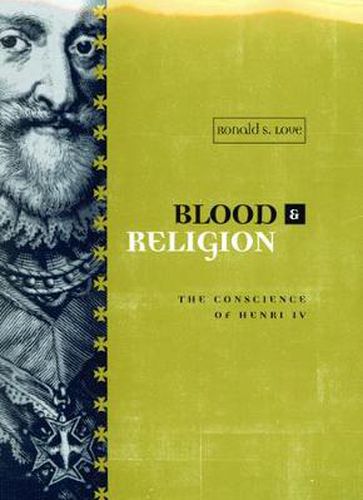Readings Newsletter
Become a Readings Member to make your shopping experience even easier.
Sign in or sign up for free!
You’re not far away from qualifying for FREE standard shipping within Australia
You’ve qualified for FREE standard shipping within Australia
The cart is loading…






In this text, Ronald Love explores the symbiosis of religion and politics in the early career of Henri IV of France, examining the king’s strong religious beliefs - imbibed in early youth from his mother, Jeanne d'Albret, Queen of Navarre - and the profound effect they had not only on his private conscience but on his political and military decisions as Huguenot leader and French monarch. Fundamental aspects of Henri’s developing character, his motivations and leadership, and the contemporary conditions under which he laboured are scrutinized from his birth in 1553 to the opening years of his reign. Love places these matters in context against the broader background of endemic civil war, contemporary religious culture, and the many responsibilities imposed upon Henri by his royal rank and political role. It concludes with a close analysis of Henri’s conversion to Catholicism in July 1593, including the king’s crisis of conscience as he struggled to secure his crown and preserve his soul. Love’s fresh interpretations of the influence of religion on Henri IV’s political and military choices challenge much of modern scholarship on this important French monarch and cast light on the motivations and worldview of 16th-century sovereigns in an age when religion and politics were inseparable.
$9.00 standard shipping within Australia
FREE standard shipping within Australia for orders over $100.00
Express & International shipping calculated at checkout
In this text, Ronald Love explores the symbiosis of religion and politics in the early career of Henri IV of France, examining the king’s strong religious beliefs - imbibed in early youth from his mother, Jeanne d'Albret, Queen of Navarre - and the profound effect they had not only on his private conscience but on his political and military decisions as Huguenot leader and French monarch. Fundamental aspects of Henri’s developing character, his motivations and leadership, and the contemporary conditions under which he laboured are scrutinized from his birth in 1553 to the opening years of his reign. Love places these matters in context against the broader background of endemic civil war, contemporary religious culture, and the many responsibilities imposed upon Henri by his royal rank and political role. It concludes with a close analysis of Henri’s conversion to Catholicism in July 1593, including the king’s crisis of conscience as he struggled to secure his crown and preserve his soul. Love’s fresh interpretations of the influence of religion on Henri IV’s political and military choices challenge much of modern scholarship on this important French monarch and cast light on the motivations and worldview of 16th-century sovereigns in an age when religion and politics were inseparable.